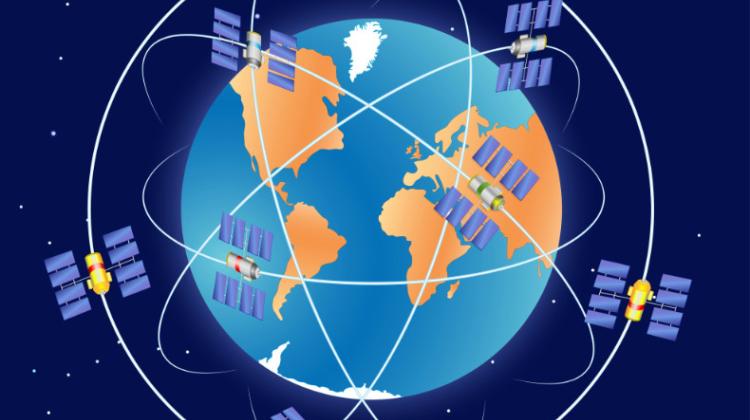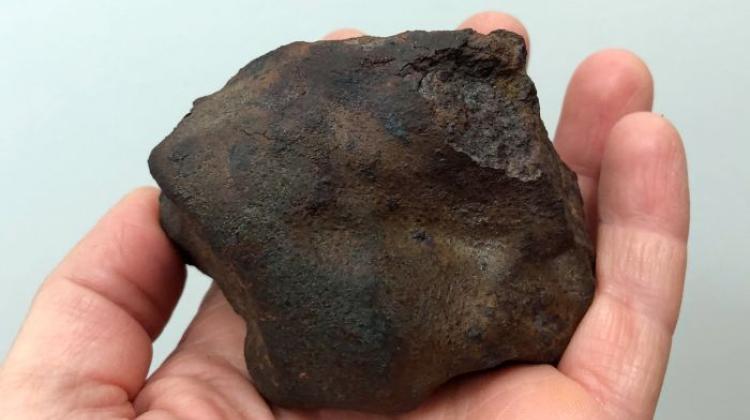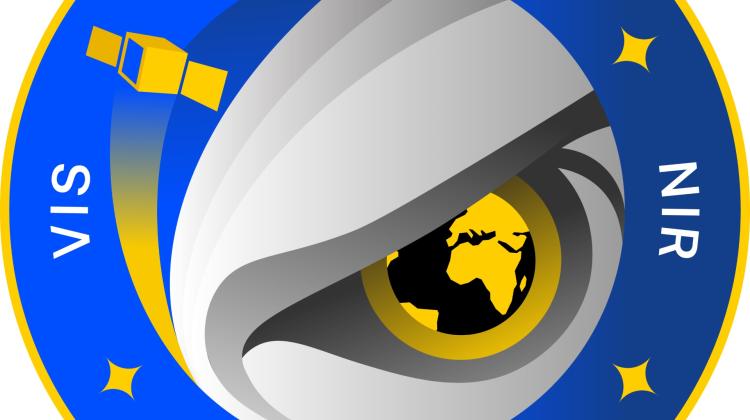Wachowicz: 20 percent increase in the number of Polish space sector entities in ten years
 Photo: Fotolia
Photo: Fotolia
There are about 230 entities associated with the Polish space sector, for about 40 of which space activities are the main revenue source. In ten years, this number may increase by 15-20 percent, which will be a great success of our industry - told PAP Marta Wachowicz from the Polish Space Agency.
"We estimate that there are currently 40 entities on the Polish space market that are systematically involved in work for space technology and the space industry. It is their main area of activity, they are seeking international contracts. They are able to survive on this activity. They employ highly specialized staff" - said Marta Wachowicz, Strategy and International Cooperation Director at the Polish Space Agency.
She explained that the Polish Space Agency identifed the group of 40 companies based on the analysis of Polish space sector entities made for the purposes of the National Space Program. "This is the first analysis of the Polish space sector, which takes into account so many different aspects of the activity of domestic entities" - she emphasised.
"The starting point was the list of Polish units registered in the European Space Agency (ESA) database. At the beginning of January 2017 there were over 350 of them, while five years ago, when we joined the ESA, only about 50. We analysed, among other things, their international contracts, such as ESA and the European Commission applications or contracts with foreign entities, domestic R&D contracts, grants financed by National Centre for Research and Development, whether and which technologies they develop, we evaluated their infrastructure potential and facilities: from production halls to sophisticated technologies, held patents and patent applications, quality standards and certificates. On this basis we identified the most active companies that actually form the space sector in Poland" - she said.
As she emphasized, how the industry will develop over the next few years depends on "a permanent source of financing for space projects, such as the National Space Program".
"Implementation of space projects takes a long time, for example preparation for a mission takes a minimum of 10 years. Building components is a 7-10 year perspective. In order for entrepreneurs to be able to include these projects in their business plans, they need to be convinced that they will not have to withdraw in a few months. Therefore, decision and financial stability are a must for the sector" - she pointed out.
According to Wachowicz, if "we have a 15-20 percent increase in the perspective of 10 years, it will be a great success of the Polish space sector". "It means a 20% increase in the number of companies that build so-called +hard+ technologies related to the creation of subsystems, systems or satellite components" - she explained.
Dr. Wachowicz emphasized that the development of the market should be supported by the National Space Program - an executive instrument of the Polish Space Strategy, which is part of the Government Strategy for Responsible Development. "The Polish Space Agency has prepared a draft National Space Program, which we have submitted for public consultation. It should be submitted to the Prime Minister by the end of the first quarter of 2018" - she noted.
She added that the budget of the Polish Space Strategy program had been planned at PLN 1 billion 429 million for the first eight years. In next year\'s budget, the Ministry of Development has prepared PLN 25 million to implement the National Space Program.
Wachowicz explained that there are two segments in the space sector. One is the supply of technology - everything that we send into space: creating instruments, building entire missions, satellites. The second segment is the use of satellite data that can be widely used - for example in agriculture or administration.
"The National Space Program approaches these two branches differently and selects different support tools for them: for both economic and scientific entities - depending on the segment of the market in which they operate" - she noted.
One of the elements of the National Space Program is the construction of a Polish satellite. "It is a strategic program - it assumes firstly the construction of an imagery intelligence satellite and acquisition of experience and data, which will be used by a wider group of users: armed forces as a key stakeholder, but also, for example, law enforcement agencies" - she said. She added that the National Space Program proposes parallel work on the construction of a scientific UV band observation satellite.
Dr. Wachowicz said that in order to develop "competences related to satellite construction" in Poland, the Polish Space Agency wants to develop specific technologies resulting from both national needs and global market trends. The idea is to give Polish companies time to prepare for specific activities. "We have entities that already operate in the market and are able to meet the requirements of the European space sector. But companies also need to invest, adapt their infrastructure to specific requirements, scale production lines, hire people" - explained Dr. Wachowicz.
According to the expert, after starting the permanent financing of the industry under the National Space Program, the number of companies and the quality of their services will increase. "Processing satellite data and creating new applications on their basis - these directions have great business potential" - she pointed out.
She emphasised that the goal was not just the number of companies, but also about their development. "We want Polish entities to acquire better and more lucrative contracts in the European market. That they climb to the top from the level of component suppliers and become manufacturers of entire subsystems" - she said. She noted that "the point is to have good players in the market. It\'s better to have fewer strong companies that have good business strategies, development plans, and are able to compete for European contracts".
"When creating the National Space Program, and especially its part concerning supporting the development of technology, we wanted to cover all possible areas that have development potential in the context of the Polish space sector. For example, in the field of mechanics we are already at a global level - Polish devices are used in foreign missions, they are good for carrying out work in the state of weightlessness. On the other hand, we do not forget about our national needs. We wanted to outline the directions, set goals and attract interest of entities that will pursue them" - she pointed out.
As she emphasized, however, the idea is not to face all the challenges ourselves, but rather to develop through cooperation with international companies. "Space is one of the few areas that can be developed by international forces. It is important that we have a significant share in the most important projects related to space exploration. If we can, for example, build a robotic arm, a braking system or a system for digging into a comet, we will be a very desirable partner in the European market" - she assessed.
According to Wachowicz, when developing the National Space Program the Polish Space Agency managed to answer the question about the areas that can be considered "Polish specialisations". "These are electronics, robotics, automation, mechanics. In these areas we meet the stringent standards of the space sector, because the cosmic environment means extreme conditions: large temperature differences, no gravity".
Dr. Wachowicz noted that the Polish Space Agency also wanted to show entrepreneurs promising areas of development. "We indicated which ideas are promising and convergent with global trends, so that our entrepreneurs could go in this direction" - she explained.
This includes, for example, space mining, communication between satellites or creating constellations of satellites. "Space mining is an area related to the issues of robotics, automation, extracting resources from the surface of comets or small bodies of the Solar System, but also to analysing these resources, robotic systems." We hope that KGHM will be interested in this area, which we would welcome with great enthusiasm" - she said. She added that space mining also includes issues related to geochemistry, subsurface studies. "We see that Europe and the US are moving in this direction. It is associated with extraordinary technological development" - she said.
"The National Space Program provides for financing projects under competitions for Polish entities. Specific technological requirements will be defined and we expect Polish entrepreneurs to take up challenges related to the development of specific products for the space market and priority programs, such as the construction of a Polish satellite" - she noted. She added that Polish entities were already capable of developing, building several components and subsystems for a large satellite infrastructure.
"If we are thinking about building a satellite or making money in the space sector, the learning process of enterprises and research institutions is crucial here. We are not capable of creating a satellite or an advanced instrument or subsystem in 2-3 years with our current potential" - she stressed. She noted that we would need support in the construction of the satellite. "We need an experienced partner who will want to share experience with us is. The decision regarding the choice of the partner is strategic - we have to determine how to make that choice, what costs and benefits will be involved - for the project, but also for the Polish space sector" - she said.
According to Dr. Wachowicz, the process of acquiring competences is extremely important in the space industry. "In this sector, the verification of skills is unambiguous: the instrument or system has been launched into space, it has worked, it has performed certain tasks, for example, it has transmitted data - or not". She added that in the industry this is called "space heritage". "In other words, it means that the instruments, mechanisms or satellite systems have reached a high technological level, because they have been tested in a flight scenario - they have worked in orbit or in the space around Earth".
In her opinion, "at the moment Poland can not afford" not having satellite systems. "This is a matter of security, but also savings. We need to invest in building our own satellite infrastructure now so that we do not have to spend significant amounts of money every year on purchasing satellite data from external suppliers" - she pointed out.
She noted that if the state were to invest in the data processing system as part of the National Space Program, thus facilitating access to them for citizens and entrepreneurs, the commercial applications market could rapidly grow. However, other areas of the space market, for example related those to the production of advanced technological solutions, such as sensors, drives or on-board computers of satellites - in her opinion - require development in the long term. "The effects of the development of the entire space sector can be measurable in 15-20 years" - she said. (PAP)
author: Magdalena Jarco
editors: Marek Michałowski, Małgorzata Dragan
maja/ maro/ kap/
tr. RL
Przed dodaniem komentarza prosimy o zapoznanie z Regulaminem forum serwisu Nauka w Polsce.















